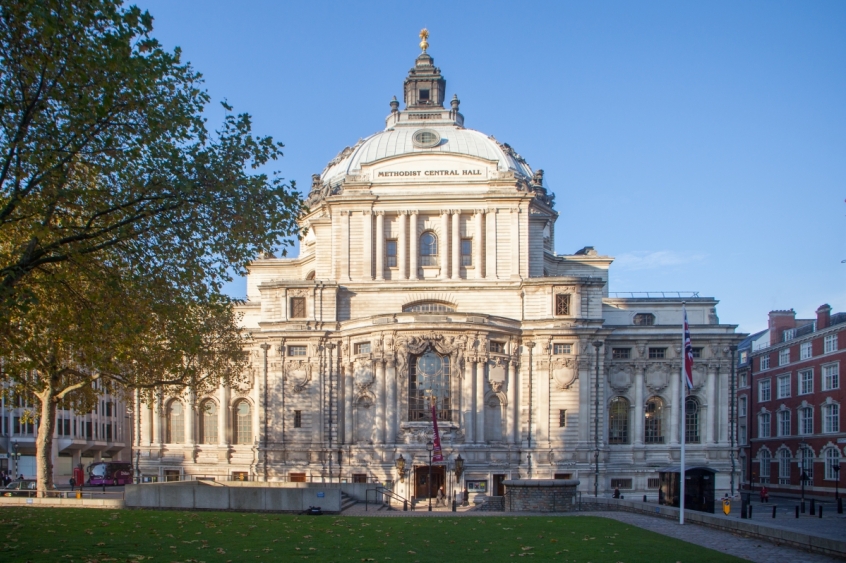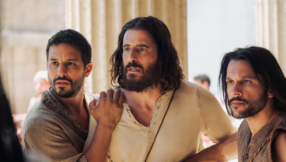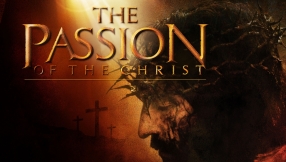It's crunch time for the Church of England and the Methodist Church.
They are facing a crucial decision this year – the CofE in February and the Methodist Church, assuming all goes well, in July. They have to decide whether their churches can share ministry, to the extent that an Anglican priest could minister in a Methodist church or – more to the point – a Methodist minister or 'presbyter' as many like to be described, could minister in an Anglican one. It's a big deal; both are thinly spread, particularly in rural areas, and an arrangement like this could be very helpful.

Sounds great. Methodists are quite like Anglicans anyway, aren't they?
Depends on which Methodists. Today's Methodist Church arose out of a union between various branches of Methodism in 1932; many of them were proudly Nonconformist, while the Wesleyans rather regretted leaving the CofE in the first place. Churches have long memories.
So they were all Anglicans originally?
Up to a point. Methodists came out of a great wave of evangelical revival in the 18<sup>th century. The movement's founder, John Wesley (and his brother Charles, the hymn writer) considered themselves loyal Anglicans, though in John's case the feeling was not returned.
200 years is quite a long time to squabble.
It's not quite like that, though the churches have spent a while growing apart. The UK Methodist Church has a definite identity and culture all of its own, and it is linked to other Methodist Churches all over the world. So any talk of organisational 'unity' between them and the Anglicans is premature, despite rather sensationalist headlines a few years ago. A previous scheme failed in 1972 when the Anglicans vetoed it. Having said that, in 2003 a Covenant was agreed that saw them taking slow and painful steps toward doing things together rather than apart. This latest move is another step on the way.
Why's it taken so long to get this far, then?
Because there are really, really difficult issues involved. The Churches are being asked to consider a proposal that they are 'now ready to take a new step towards full visible unity in a relationship of communion with one another, sustaining shared commitments regarding episcopal and presbyteral ministries'.
Specifically?
To 'share the ministry of the historic episcopate' and to 'welcome all presbyters/priests serving in either Church as eligible to serve in both churches'.
And that is controversial why?
Anglicans believe their episcopal ministry has to be personal – ie bishops exercise authority and teach personally – historic, passed down from bishop to bishop from the apostles (though they don't think it has to be a literal hands-on-heads transmission) and 'received' – you can't just create it out of nothing, it has to connect to the wider church. This was underlined by the Lambeth Quadrilateral in 1888, which stressed that for Anglicans to be in full communion with other Churches the historic episcopacy was essential. British Methodists don't have bishops of any description, so there is a bit of a problem here.
It sounds as though the problem is insuperable.
Perhaps not quite. This is what makes ecumenism so fascinating: people come out of their theological trenches and start kicking ideological footballs around in No Man's Land, and sometimes end up re-writing the rules of the game. In this case, the question was: if we look again at what Methodists actually believe, can we find enough common ground for us to be able to fudge things?
And can they?
They would probably prefer to talk about creative ambiguity. Methodists have nothing against the 'historic episcopate', they just don't think it's essential. They've also said they're happy to take on new theological developments 'compatible with our ethos', among them the historic episcopate, if it helps in mission terms. The document that's going to be discussed this year – Mission and Ministry in Covenant – notes there are various theologies of the episcopate around in Anglican and Methodist circles globally anyway.
But still – Anglicans have bishops and British Methodists don't.
Technically that's right. But authority and oversight is exercised over Methodists by the annual Conference, which expresses – so the argument goes – something of what Anglicans mean by the historic episcopate. Everyone who ministers in Methodist churches does so under the authority of the Conference and it pronounces on doctrinal matters too, so it is like a corporate bishop.
But what about the 'personal' bit?
There is a President of the Conference, who is ordained, and a vice-president, who is usually lay (it's open to deacons too). They are theoretically equal in standing, but the president has various powers and responsibilities. So the President of the Conference could be ordained as a president-bishop, by the traditional three bishops (at least) who have already been ordained in the historic episcopate – presumably Anglicans. The president-bishop would then participate in all subsequent Methodist ordinations, ensuring an apostolic succession of sorts.
What about existing Methodist presbyters? Would they have to be re-ordained?
You'd think so, logically, but that would be a step too far for many Methodists as it would seem to invalidate their current ministry. So the Anglicans suggest living with it as a 'temporary anomaly' which will be ironed out in the fullness of time as current presbyters retire or die.
This is quite a big thing for both of them, then.
Yes. For Anglicans in the Catholic tradition, it is watering down the Church of England's commitment to the apostolic succession for the sake of accommodating a church that doesn't really hold to its doctrine – and whose centre of gravity is far more liberal than the CofE's, to boot. For Methodists, even if they don't have to be re-ordained, it still looks as though they have to meet the Anglican conditions of membership to be admitted to the club of 'real' churches. While the upper echelons of Methodism have tended to be drawn from the Wesleyan stream for whom this wouldn't be a problem, the old Primitives and other die-hards might decide to dig their heels in.
But we still aren't talking about actual Church unity.
In the sense of everyone joining in one organisation nationally, no. But if both churches agree to this – and it is absolutely not a done deal – locally it might look a bit like that in some places, with Methodist ministers running Anglican parish churches and Anglicans in Methodist circuits. In that case, each has something to gain. The Methodist Church is cash-rich, and some of those resources would be very welcome to the CofE. But it's also facing a demographic cliff, with a large number of its members very elderly. It has not really been much into evangelism as a church, so the CofE – which has its own challenges in that area – might be able to help it there.
Whichever way it goes, 2018 will be a very significant year.













